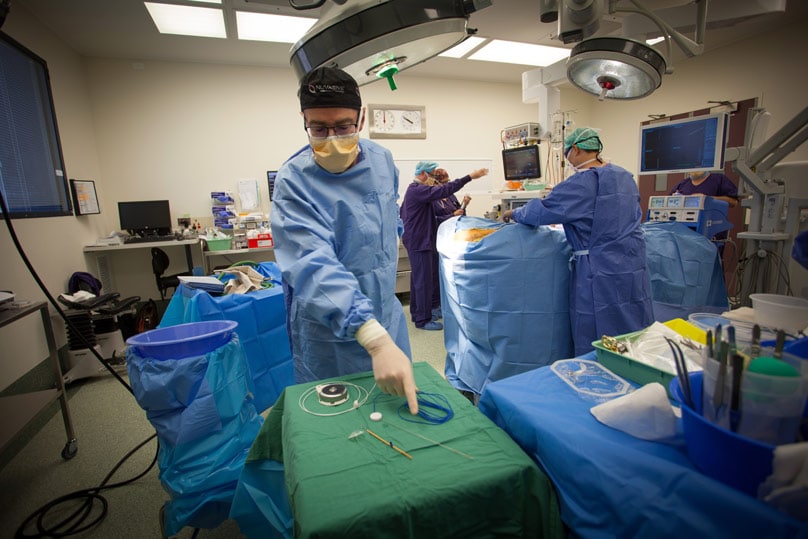
While Prime Minister Malcolm Turnbull and Opposition leader Bill Shorten have promised to protect religious freedoms if same-sex marriage is legalised, the Northern Territory Government has unveiled proposals for extending anti-discrimination laws which would, if implemented, do away with all exemptions for religious organisations – except the freedom to ordain ministers of religion.
The proposals are among the most extreme ever floated by a State or Territory government in Australia – but are broadly in accord with measures introduced in all other countries where same-sex marriage has been introduced.
They also appear to give the lie to the idea that religious freedoms will actually be protected in Australia if same-sex marriage is introduced.
The proposals are contained in the discussion paper Modernisation of the Anti-Discrimination Act issued by the NT Attorney General’s Department and dated September 2017.

Religious organisations in the NT would still be allowed to choose who was selected for education and ordained to official priesthood – beyond that almost all exemptions would disappear. Among measures floated by the paper are the removal of all current exemptions for religious bodies in the areas of schools, accommodation controlled by religious bodies or used for religious purposes such as retreat centres and monasteries and access to religious sites.
Instead, religious bodies would be required to apply for and justify exemptions with the Territory’s Anti Discrimination Commission. Religious schools are among those specifically targeted.
“Another exemption that could be removed is Section 37A that permits religious schools to discriminate against employees on the grounds of religious beliefs, activity or sexuality if done in good faith to avoid offending the religious sensitivities of people of the particular religion,” the paper says.
Currently, religious schools in the NT can justify refusing to employ a prospective employee who openly identifies as lesbian, homosexual, bi-sexual, transgender or inter-sex if the religious doctrine of the school does not support such ways of life or relationships.

Under the ideas floated as ways of extending the NT’s existing anti-discrimination legislation, no religious organisations would be able to deny the use of sites or facilities such as parish churches, mosques and synagogues to organisations supporting same-sex marriage or bodies opposed to the beliefs of those churches.
Whether Aboriginal custodians could lose grounds for refusing access to traditional sacred sites is unclear; the paper floats the idea of removing Section 43 of the Act, which enables religious organisations to limit access to cultural or religious sites such as churches and shrines, but notes that protection of Aboriginal sacred sites are protected through the NT’s Aboriginal Sacred Sites Act.
However why Aboriginal sites would continue to be protected but not those of religious organisations is not explained.
Federal Attorney-General George Brandis and Senator Zed Seselja disagree on marriage
https://youtu.be/Dotn2M7q-uw
All other organisations, including businesses would lose existing exemptions which enable them to refuse to cooperate with activities with which they disagree or do not wish to be involved.
Retreat centres, monasteries and convents would likely be in breach of NT legislation were they to refuse bookings or use of those services to gay organisations were the ideas floated in the discussion paper to be adopted.
Implementation of the ideas would “ensure that cultural and religious bodies are more accountable for their actions and more inclusive,” the paper said.
Launching the discussion paper on 3 September, NT Attorney General Natasha Fyles said the Review “… will look at modernising language in relation to disability, removing out dated language in relation to sexual orientation, use inclusive language around gender diversity and caring for children.”
Federal Attorney-General George Brandis speaks about religious freedom in 2013, from 5m10s mark:
A spokesman for NSW Attorney General Mark Speakman told The Catholic Weekly the State Government is not considering removing any existing exemptions allowed under the State Act to religious organisations.
He told the paper the Government is reviewing the operation of section 20D of the Anti-Discrimination Act which relates to offences of serious racial vilification.
Federal Attorney General Senator George Brandis was unavailable for comment on the NT issue.
A spokesman for Senator Brandis said he had no comment on the NT paper but pointed to recent statements by the Prime Minister, the Attorney General and other federal ministers outlining their commitment to religious freedoms if same-sex marriage is legalised.
Opportunities for public comment on the NT Review and its discussion paper close on 3 December.
